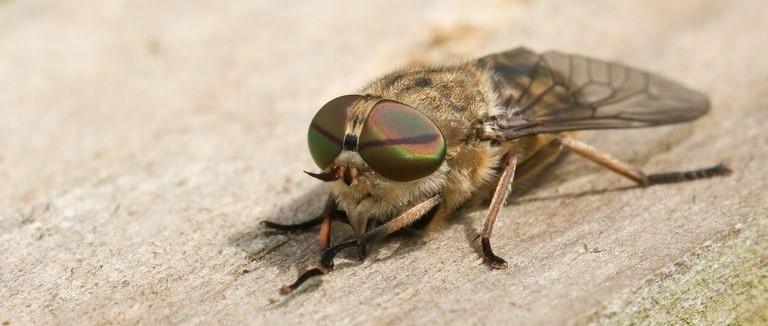
When should I worry about an insect bite?
Peer reviewed by Dr Colin Tidy, MRCGPLast updated by Heather AinsworthLast updated 28 Jul 2025
Meets Patient’s editorial guidelines
- DownloadDownload
- Share
- Language
- Discussion
- Audio Version
Insect bites are common at this time of year - but what are the signs that a bite may require medical attention, and how can you tell which insect is responsible for which itch?
In this article:
Video picks for Stings and bites
You may be enjoying a balmy summer's evening outside, only to hear that tell-tale buzz. Mosquitoes, midges and horseflies - a common nuisance at this time of year.
While insect bites aren't pleasant, we tend to see them as just a nuisance. Unlike tropical regions - in which mosquitoes can carry malarial parasites - the UK does not play host to many dangerous insects, and most bites will go away by themselves in a few days.
However, if a bite is really bothering you, it's a good idea to look into strategies for relieving the irritation. It's also important to be wise to the signs that a bite may be something more serious.
Continue reading below
What are the most common insect bites?
If you're in the UK, the most common insect bites come from a flea, tick, mosquito, horsefly, bedbug or midge. Because the different bites can be quite similar in how they look and feel, it can be hard to tell them apart.
Mosquitos, midges, fleas and bedbugs
Pharmacist Rupal Joshi, Clinical Lead, Numan says that mosquito and midge bites cause small, pink or red bumps on your skin, and are usually very itchy.
"Bites from fleas are usually small, itchy red lumps and can be grouped together in clusters of a few bites together," she explains. "They are often found on the ankles and legs. Bedbug bites are also clustered but are often in a straight line across the skin. They typically occur on the face, neck, hands or arms."
Horseflies
You will probably know if a horsefly has bitten you as the bite will cause a painful, burning sensation. Horseflies are light and you may not notice them on your body, giving them plenty of time to rupture your skin.
Joshi adds: "The bitten area of skin will usually be red and raised, and can be accompanied by dizziness or weakness. This bite also lasts longer."
Bees and wasps
Wasp and bee stings are another common problem during the summer.
Dr Stuart Sanders, Clinical Governance Lead, The London General Practice, says: "Wasp and bee stings are initially quite painful, and develop into a red swollen area which is less painful but very itchy. The swollen area increases over 12 to 24 hours and then subsides over the next few days. Washing the area and applying antihistamine cream should help."
If the insect's sting is visible in the skin it should be scraped out - with the edge of a knife, a credit card or even a fingernail - as soon as possible. Never pluck it out by grasping it with tweezers or your fingernails, as this can squeeze more venom into the skin.
Why you need to be wary about tick bites
Back to contentsTick bites are not usually painful - you may not even realise you've been bitten - but the tick can remain attached to your skin for up to two weeks It will need to be removed with a special tick remover or fine-toothed tweezers.
The danger here is that some ticks carry Lyme disease - a sometimes debilitating infection that is becoming more widespread across Europe.
"The tick is a small insect that crawls on to the skin and attaches itself, sucking the host's blood and enlarging, at which stage it can be easily seen," explains Dr Sanders. "When it is filled with blood, it drops off. Flying insect stings can occur on any exposed part of the body and under clothing, whereas ticks go for the lower part of the trunk and legs."
A tell-tale sign that you have contracted Lyme disease is the presence of a bullseye rash (erythema migrans), spreading out from the site of the bite. This can appear between three and 36 days after being bitten - although it isn't present in all Lyme patients. You may also experience flu-like symptoms. If you suspect you've been bitten by a tick and develop the bullseye rash or other symptoms, seek medical help.
Prevention is better than cure here, so be careful when walking in woodland or through long, thick grass. This might mean covering up and using insect repellent, as well as checking yourself for ticks when you get back.
A word on tick-borne encephalitis
Ticks can also be infected with a virus that causes tick-borne encephalitis (TBE), and can transmit the virus when they bite. TBE can also occasionally be passed on by drinking unpasteurised milk from infected animals, especially goats.
In 2019, the first case of TBE thought to have been caught in the UK was identified. Infected ticks are found in parts of Europe, Russia, China, Japan and South Korea. If you're travelling to an area with a high chance of contracting TBE and are going to be spending a lot of time outdoors - for example, camping, rambling, or working in a forest - during tick season, you may need to consider vaccination against TBE. You should also visit websites such as Travel Health Pro (NaTHNaC) which give information on areas with the highest incidence rate.
If you develop possible symptoms of TBE - for example, high fever, severe headache, neck stiffness, weakness in one part of your body, confusion, seizures - you should seek emergency medical help - call for an emergency ambulance (999 in the UK).
Continue reading below
How to treat insect bites
Back to contentsThe first rule in treating insect bites is not to scratch. Although it does relieve the itching temporarily, it can also break the skin and cause infection.
Instead, you could use a cold compress or ice pack to calm the itch and any swelling. Or pay a visit to your local pharmacist for some over-the-counter remedies and advice.
Pharmacist Abbas Kanani, Chemist Click, recommends hydrocortisone - a steroid cream that works to reduce inflammation, and is often a useful tool for managing insect bites.
"Other creams or gels such as aloe vera gel can also provide a cooling sensation and reduce irritation caused by bites," he adds. "Antihistamines are easily available over the counter and work to lower histamine - the chemical produced in response to a bite, which causes itchiness and raised skin."
When to seek medical attention
Back to contentsAs part of the Pharmacy First Service, if you are aged one and over you can get free advice and treatment for insect stings or bites from your local pharmacist.
Your pharmacist can recommend over the counter products or may suggest a course of antibiotics, if appropriate. If they feel you need extra help they will get you to see your GP or other health services.
However, contact your GP if:
You develop symptoms of Lyme disease.
You have signs of an infection - such as oozing pus, increasing pain and high temperature.
The bite is in your mouth, your throat, or near your eyes.
A large patch of skin is red and swollen.
Your symptoms don't improve, or they get worse.
Most of the time though, an insect bite is nothing to worry about. It will die down without causing lasting damage, and your itch-free summer can resume.
Seek urgent medical attention, by dialling 999 - if in the UK - if you have signs of an allergic reaction. This includes:
Swelling of the face. mouth, or throat.
Difficulty breathing.
Increased heart rate.
Feeling light-headed or dizzy.
Feeling sick and vomiting.
Patient picks for Stings and bites

Skin, nail and hair health
How to treat a horsefly bite
Summer has many perks, but horsefly bites are not one of them. Do you know how to prevent these nasty insect bites, what can soothe your pain and discomfort, and which symptoms indicate a possible infection or allergic reaction?
by Amberley Davis

Skin, nail and hair health
What to do if you're stung by a sea urchin
While many sea urchin stings can be mild and their symptoms go away within a few days, there is a possibility of them becoming seriously infected. Therefore, it's important to know how to act in these situations and when to seek professional help.
by Emily Jane Bashforth
Continue reading below
Article history
The information on this page is peer reviewed by qualified clinicians.
Next review due: 28 Jul 2028
28 Jul 2025 | Latest version
1 Sept 2021 | Originally published
Authored by:
Abi Millar

Ask, share, connect.
Browse discussions, ask questions, and share experiences across hundreds of health topics.

Feeling unwell?
Assess your symptoms online for free
Sign up to the Patient newsletter
Your weekly dose of clear, trustworthy health advice - written to help you feel informed, confident and in control.
By subscribing you accept our Privacy Policy. You can unsubscribe at any time. We never sell your data.